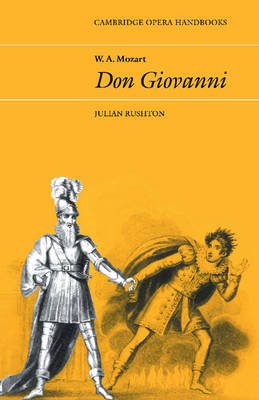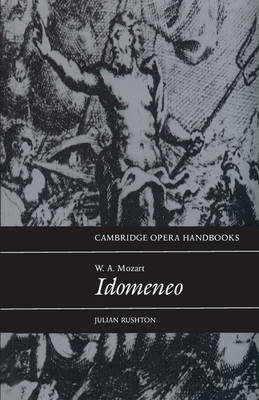Cambridge Opera Handbooks
2 total works
This book is a study of Mozart's Don Giovanni, his second opera to a libretto by da Ponte. Although it is one of the handful of best-known and most often performed operas of the last two hundred years, Don Giovanni is seldom given in an authentic form and arguments persist as to its nature. Julian Rushton takes the view that, notwithstanding the tragic nature of certain scenes, it must be regarded as an opera buffa. He gives a brief summary of its history and life in the theatre, but the chief historical essay (by Edward Forman) concerns the subject-matter before it reached da Ponte. The book includes a very detailed synopsis which forms the basis of an extended commentary on the librettist's handling of a plot constructed of both original and inherited ideas. Bernard Williams contributes an essay on Don Giovanni as an idea in literature and philosophy since Mozart. The book concludes with an extensive bibliography, and a discography of complete recordings compiled by Malcolm Walker.
Idomeneo, by common consent Mozart's greatest opera seria, is a rich synthesis of the dramatic potentialities of Italian opera seria, French tragedie lyrique, and recent German opera. It was composed for the finest orchestra in Germany and some excellent singers. Mozart's relish of the challenge and his problems with some performers and the bureaucracy are uniquely documented in his letters home and these form the basis of a vivid account of the genesis of the opera. A detailed synopsis relates the musical and dramatic action of the opera. Further chapters trace the historical development of its subject matter 'from myth to libretto' and chart the opera's performance history, including a description of Richard Strauss's 1931 reworking. Later chapters consider the opera's general structure and the musical forms, and analyse passages of particular interest.

